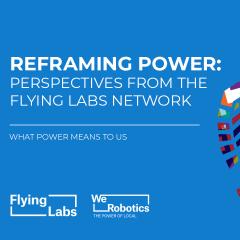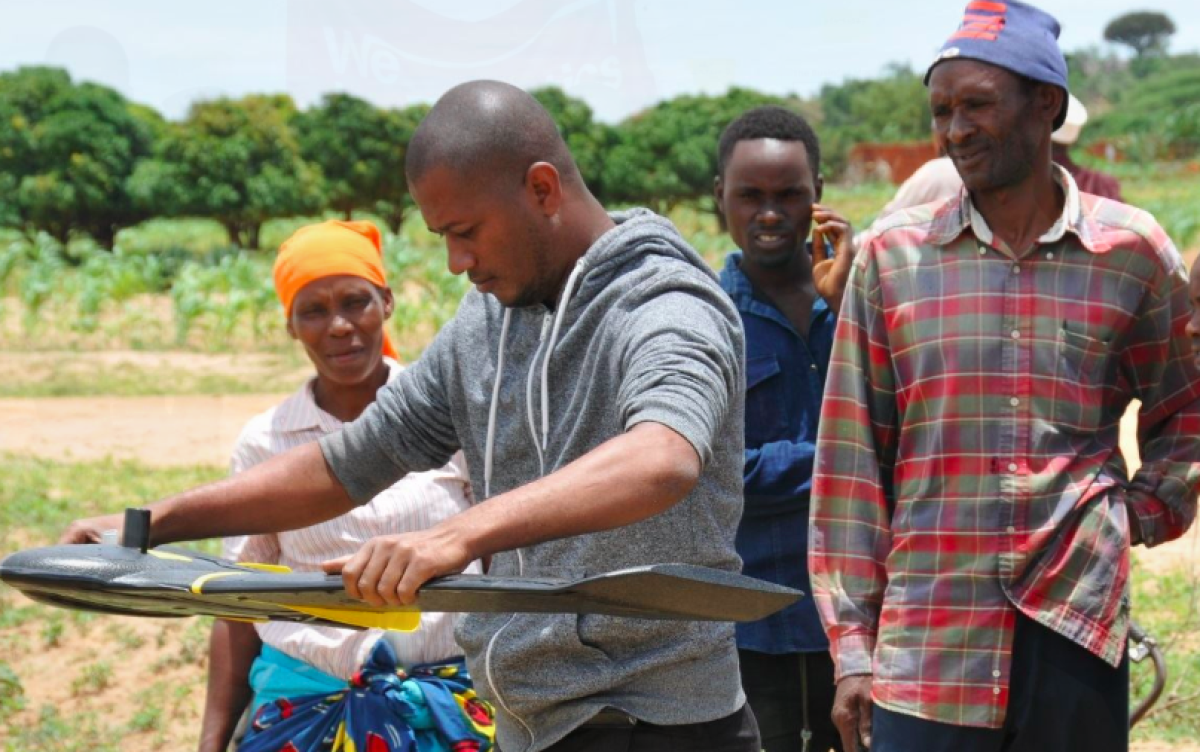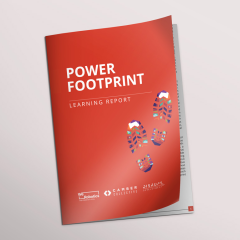
Why We Want Drones Made in Wakanda
September 3rd, 2018


"Time and time again we see international organizations hire foreign drone companies to do work the local drone pilots can do equally well, more quickly and with lower overhead costs. Hence our trainings!" So reads a tweet we published earlier this year in relation to a regional training offered by our Tanzania Flying Labs. Our good colleague William from Cameroon was not impressed. He tweeted back: "True. And sometimes we see international organizations train local drone pilots with foreign made drones while local drone makers could do equally well, more quickly and with lower overhead costs." That brilliant come-back was worthy of an Obama mic-drop moment.
We've had some great discussions with William since then. Fact is, we would absolutely love to connect with local drone manufacturers in Africa. So please do get in touch (humans@werobotics.org) if you are a local manufacturer and/or if can introduce us to local manufacturers. Sourcing from local manufacturers would give our Flying Labs more options and would enable our budgets to stretch further. This explains why we've been scouting for local drone manufacturing companies in Africa since William's pointed reply. Thus far we've come up a little short, hence this blog post—we could use a little help!
In terms of the few local manufacturers that we did come across, it was suprising to learn that the price of their drones was sometimes higher than the price of DJI and Parrot drones, for example. This doesn't have to be a deal-breaker, however. A local manufacturer is able to offer repair services on site and other important services. This is rarely if ever true of DJI or Parrot, for example. Sure, DJI has service centers, but there are only 2 DJI service centers in all of Africa, and both are in Cape Town.
We did find a few additional challenges vis-a-vis local drone manufacturers. Local companies are relatively small and as such the number of units available for purchase tends to be relatively small. In the same vein, because these companies are smaller, their ability to provide tech support is limited. In addition, evaluating the reliability of locally produced drones seems to be a bit of challenge. Naturally, our Flying Labs could do some of the initial testing. Then again, more time may be needed to fully test and evaluate new drones. In addition, local drone manufacturers may need to get their platforms certified by relevant authorities in their countries. In terms of safety, we recently spoke to colleagues in Botswana who hope to sell their very affordable fixed wing-drones in the future. They emphasized that their single-propeller drones are very light weight, so in that sense safer than the heavier, four-propeller multi-copter drones. In addition, they will be adding a parachute to their drones to ensure they are completely safe even if the drones run into technical problems.
 Some of the challenges described above may perhaps explain why the majority of local drone services companies we've come across in Africa are using drones manufactured in Europe and China. That being said, we would love to see an organization work with local drone manufacturers to help them grow their manufacturing base and become more competitive by taking advantage of being local. Our Flying Labs would benefit tremendously from the results as would WeRobotics. After all, who wouldn't want to have drones made in Wakanda?!
Some of the challenges described above may perhaps explain why the majority of local drone services companies we've come across in Africa are using drones manufactured in Europe and China. That being said, we would love to see an organization work with local drone manufacturers to help them grow their manufacturing base and become more competitive by taking advantage of being local. Our Flying Labs would benefit tremendously from the results as would WeRobotics. After all, who wouldn't want to have drones made in Wakanda?!
It is worth noting that we do have a Business Incubation Program, but said program is specifically focused on drone services, not manufacturing. Why? For 4 simple reasons: 1) Our mission is to localize opportunities around the application of robotics, not in the manufacturing of robotics; 2) We are a not-for-profit organization, not an engineering company; 3) Our expertise and comparative advantage is squarely in the provision of robotics as a service, not manufacturing; 4) We believe the greatest positive social impact that our Flying Labs can have is by being leaders on the services side.
All of this brings up another important question, however: why not at least use more affordable drones from the US, Europe and China? In terms of price-point, it is really hard to beat the price of DJI drones as far as multi-rotor drones go. They are also very mature and reliable platforms. On the fixed-wing side, there are definitely more affordable fixed-wing drones out there than senseFly's eBee drone but the cost of eBees have fallen by more than half since we first flew one years ago. Still, there are far less expensive fixed-wing drones out there. So why not use those? We have, we've tried, didn't work out so well.
Interestingly, we're not the only ones who have struggled with lower cost fixed-wing drones. A colleague of ours at the Red Cross had this to say about one such drone: "didn’t work, long story, not part of our fleet anymore." Another colleague who runs his own drone services company in Malawi recently gave up on low-cost fixed-wing drones altogether. It turns out he was spending way more time having to troubleshoot and fix the drones than being able to fly them. Fact is, while drones like the eBee may be more expensive, they are typically easier, more reliable and have a much longer range than their more DIY cousins. These are some of the tradeoffs. And drone services companies such as those we've worked with from Australia and Latin America, for example, still opt for the lower cost fixed-wing drones and have a larger engineering team to troubleshoot and fix them.
Based on these tradeoffs, the majority of our Flying Labs have thus far opted for the more reliable, upper-end drones in order to focus on services without needing to constantly troubleshoot and fix the drone technology. There are of course exceptions within the Flying Labs network. Our Panama Flying Labs, for example, have built their own drones, although it's worth noting that they use their locally made drones more for teaching and testing rather than the provision of professional drone services. Over in Southern Africa, a prospective Affiliate Flying Labs in the region already uses their own locally-built drones as a way to teach and train local youth. If they move forward and launch their Flying Labs, it will serve as an important test to see how they apply their locally sourced drones to offer professional services in their country.
In any event, we'll continue searching for drones made in Wakanda. And in the meantime, we hope the above sheds some light on why our Flying Labs pilots fly the drones they fly and why are Flying Labs are focused on services rather than manufacturing. This is the right formula for us given our vision and mission. If others see an exciting opportunity to support and scale the local manufacturing of drones in Africa, we hope they'll let us know when Wakanda drones become available so that our Flying Labs can test them out!
Location(s):
Recent Articles

